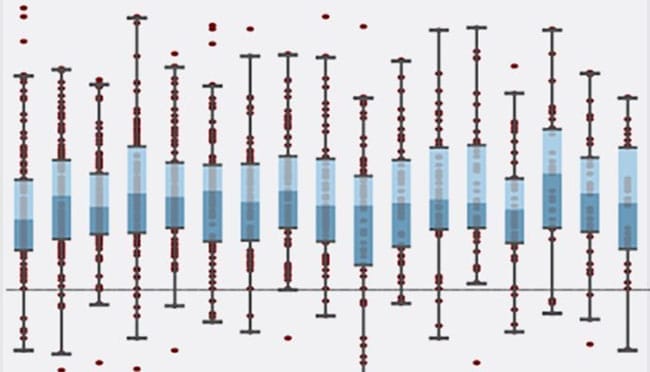The term “specialization” is a specific one in the world of Coursera, a lead platform for massive open online courses (MOOCs). Specializations entail four thematically linked courses. After these four-week courses, students can participate in a capstone project, a real-world application of what they’ve learned.
At the very end, learners can pay $95 for a verified certificate, a credential that they can display on their CV.
Wharton test-drove the specialization model with its Business Foundation series—which has been taken by an estimated 650,000 students, 25,000 of whom paid for the verified certificate. With its success, the School launched into a second series: the Business Analytics specialization. Led by faculty members Peter Fader and Eric Bradlow W88—co-directors of the Wharton Customer Analytics Initiative and the Frances and Pei-Yuan Chia Professor and K.P. Chao Professor, respectively—the specialization’s four courses touch on customer, operations, people and accounting analytics (see the box below).
“The entire specialization was designed with one clear learning outcome,” says Anne Trumbore, director of Wharton Online. That outcome is fluency in the language of business analytics.
The coursework isn’t designed to teach students how to do analytics. Instead, students gain more understanding about what analytics experts are talking about, what leading companies are doing and considerations that go into applying data for a given business purpose. The capstone project features a business problem from specialization partner Yahoo. Throughout, professors teach at a level that allows almost anyone to participate, explains Trumbore, who worked on Stanford’s first Web-based learning program, then at Coursera.
“You don’t have to be a math whiz or a geeky computer scientist to take and benefit from our specialization. You will learn simple but powerful tools that will help you make better business decisions by seeing the strategic horizon through the blizzard of information that is all around you,” Dean Geoffrey Garrett wrote in a LinkedIn article (and republished here).
About 40,000 students have participated in the courses so far, and 7,000 have earned certificates.
Besides knowledge from Wharton’s world-class teachers, the flexibility of the MOOC model could explain this early success. The first course on customer analytics started on Sept. 15, 2015, the fourth on accounting on Jan. 11, 2016. Interested students can now sign up for any of the courses on the first Monday of every month. They can sign up for all four MOOCs at once or take one at a time in any order.
By the looks of the notes on the whiteboard in Trumbore’s office, Wharton Online has a number of other specializations on the way. The planning feeds a virtuous cycle.
“People love them, and we love that people love them,” Trumbore says of Wharton’s MOOCs.

























